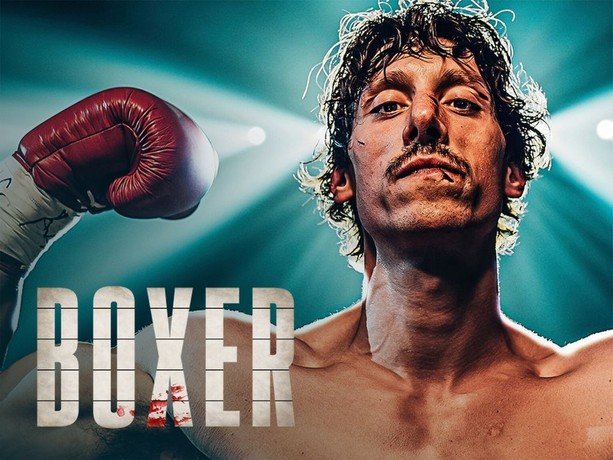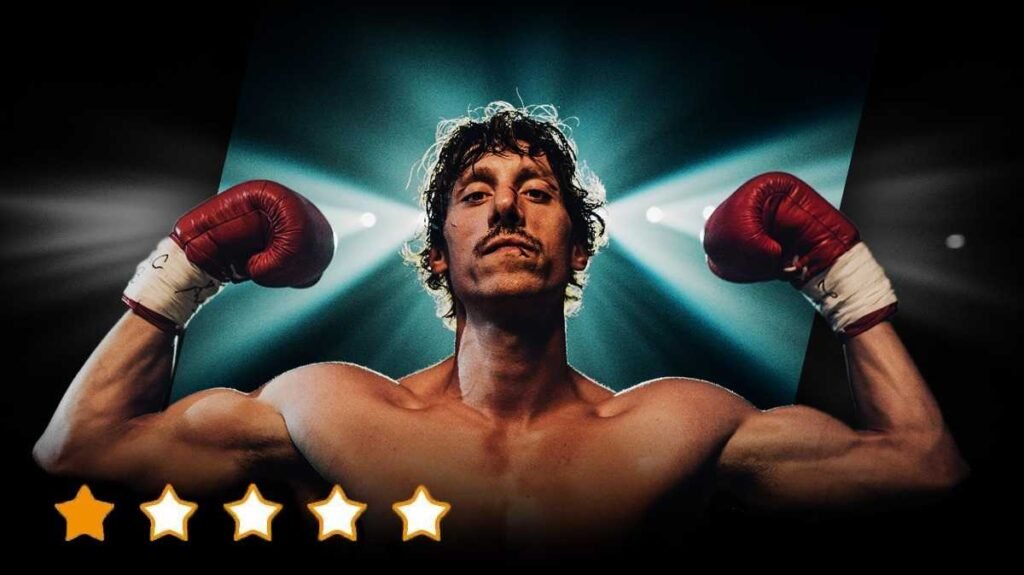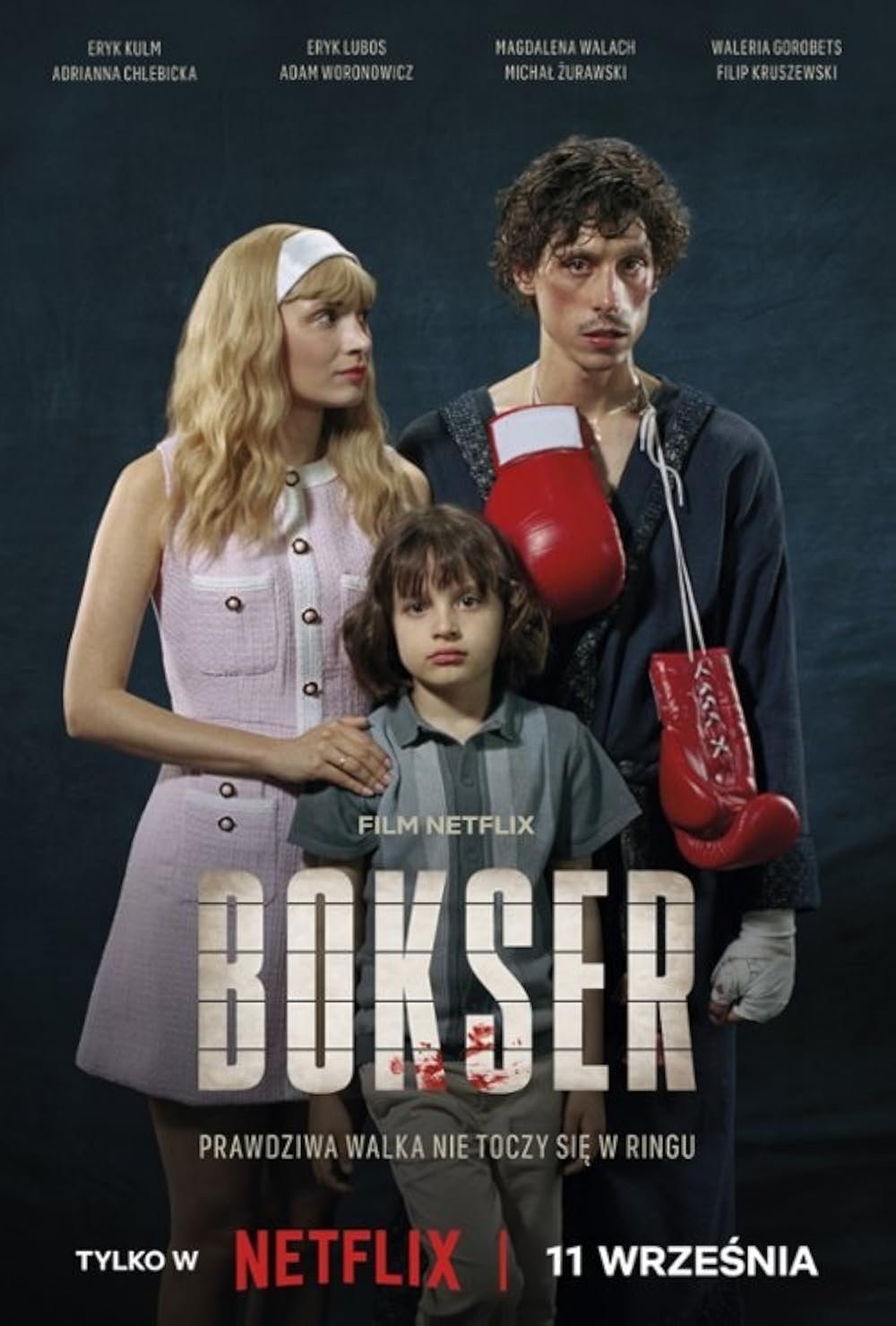
As someone who has never punched somebody in this lifetime, I do love to watch movies about boxing. Yes, it’s a pretty nonsensical sport, but when every punch, jab, and hook is injected with complex emotions and whatnot, it does make for an enjoyable viewing experience. I grew up watching the Rocky movies (and all of them are great, in my opinion), and the sequel franchise, Creed, is pretty damn good. Martin Scorsese’s Raging Bull is a masterpiece, and there’s no doubt about that. Cinderella Man, The Fighter, and Southpaw are some other amazing examples. Veering away from the traditional “hero’s journey” format, there’s The Harder They Fall, The Hurricane, Million Dollar Baby, and, dare I say, Real Steel. Indian movies have fared quite well in this subgenre with Mukkabaaz, Sarpatta Parambarai, and Irudhi Suttru by talking about politics in sports, casteism, and sexism. Boxer, the Polish Netflix film, aims to show yet another aspect of boxing but ends up repeating every cliche you’ve ever seen.

Mitja Okorn’s Boxer, written by Ivan Bezmarevic, Okorn, and Lucas Coleman, starts off in 1995 with Jedrzej reminiscing about the past in his uncle Czesiek’s gym. The clocks are turned back to 1971 to show Jedrzej’s father, Edwin, putting up an admirable fight and then celebrating his win with his family. That’s interrupted by two intimidating men who seemingly make Edwin an offer, in regards to his next fight, that he accepts. This leads to a falling out between Edwin and Czesiek, thereby putting an end to the former’s boxing career as well as Jedrzej’s dreams of becoming a boxer. Edwin starts working as a miner, and soon after that, he passes away. Jedrzej uses this opportunity to become a boxer under the guidance of Czesiek. He falls in love with a girl named Kasia. But then the historical Polish Crisis happens and pushes the protagonist and his wife into poverty. That’s when Jedrzej comes up with the idea of fleeing to England and continuing his career there so that he can achieve the success that he can’t presently attain in Poland. After that, it’s the usual “corruption of the soul due to greed” story that you’ve seen a hundred times by now.

Spoiler warning, I guess; Boxer concludes with the statement that during the ‘80s, over a million people fled Poland to avoid dying of poverty or persecution and took their chances elsewhere. That’s followed by a montage of a bunch of Polish athletes who made it to the world stage. That made me wonder why the 2-hour and 32-minute-long film that I just finished watching wasn’t about them. To be clear, the writers hardly talk about the Polish Crisis. The impact of the Polish government back then is completely bypassed to give us a by-the-numbers rags-to-riches-back-to-rags-to-redemption story. Everything after the moment Jedrzej and Kasia land in England is so predictable that you can tell where the narrative is going to go with your eyes closed. And the underlying commentary is all about money, drugs, loyalty, adultery, and how children repeat the mistakes of their parents. The Polish Crisis merely serves as a backdrop. The fact that the characters have escaped from Poland doesn’t really matter after a point. They could’ve come from outer space, and the plot would’ve been the same. And it’s annoying that the film keeps reminding us about the character of Krzystof Nowak, who is winning games while living through the oppressive times in Poland, because that sounds like a better story than the one we are being subjected to.
![Boy Kills World (2024) Dual Audio [Hindi (Clean) & ENG] WEB-DL 480p, 720p & 1080p](https://mctmovie.com/wp-content/uploads/2024/12/images-13-150x150.jpeg)
![The Crow (2024) Dual Audio [Hindi ORG & ENG] WEB-DL 480p, 720p & 1080p |](https://mctmovie.com/wp-content/uploads/2024/12/images-11-150x150.jpeg)
![Secret Level : Season 1 Dual Audio [Hindi ORG & ENG] WEB-DL 720p & 1080p HEVC | [Epi 1-15 All Added – Complete]](https://mctmovie.com/wp-content/uploads/2024/12/tXMi6tb1owDAALnFFqnWjjd26if-185x278-1-150x150.jpg)

![why him(2016) Dual Audio [Hindi (Clean) & ENG] WEB-DL 480p, 720p & 1080p comedy movie](https://mctmovie.com/wp-content/uploads/2024/12/images-9-150x150.jpeg)
![Kraven The Hunter (2024) Dual Audio [Hindi (Clean) & ENG] WEB-DL 480p, 720p & 1080p | GDRive](https://mctmovie.com/wp-content/uploads/2024/12/images-7-150x150.jpeg)
